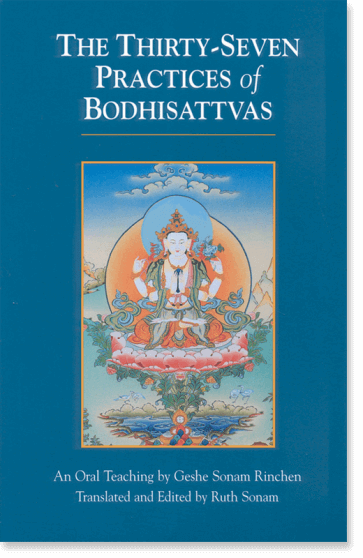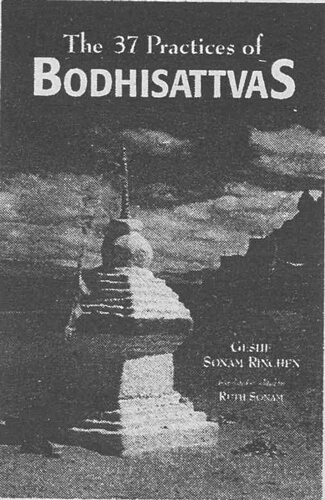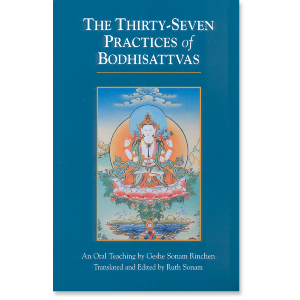| The following article is from the Winter, 1997 issue of the Snow Lion Newsletter and is for historical reference only. You can see this in context of the original newsletter here. |
by Geshe Sonarn Rinchen trans. & ed. by Ruth Sonarn 112 pp. #THSEPR $12.95 February

The following is a short selection from the fourth chapter entitled Trusting.
Bound himself in the jail of cyclic existence,
What worldly god can give you protection?
Therefore when you seek refuge, take refuge in
The Three Jewels which will not betray you
This is the practice of Bodhisattvas.
There are many well-known powerful worldly gods and forces which, because they're still controlled by contaminated actions and disturbing emotions, remain like ourselves within the prison of cyclic existence. Influenced by sources of suffering like the three poisons, they perform harmful actions which express their hostility and desire. The praises extolling such worldly gods actually laud them for these very activities. From a Buddhist point of view, this shows they're still trapped within cyclic existence and therefore, no matter how powerful, are incapable of protecting others from suffering and fear. If you're sinking in a swamp yourself, you're not in a position to rescue anyone else. In order to be fully capable of showing others how to free themselves, you must be free from cyclic existence yourself. We need a refuge we can trust and which will not let us down. The Three Jewels are such a refuge, for they will never fail us. Taking refuge in them, we look upon the enlightened beings as those who show us our true protection. We regard their teaching as our actual refuge and the spiritual community as our companions and role-models. When we are overwhelmed by obstructions, feel afraid or are in pain, we have a support and a source of strength and hope. Feeling this trust is taking mental refuge, expressing it in words is taking verbal refuge and making any gesture of homage is taking physical refuge. We then try to live by the refuge precepts.
When we see no way out, when we look to our right and left but no one, not even enlightened beings and our spiritual teachers, can do anything directly to help us, there's no need for despair because the virtue we ourselves have created will act as our refuge and protection.

The original edition
If we imagine our spiritual teachers and the Three Jewels before us, thinking again and again of their excellent qualities, we'll remember them not only during our waking hours but during the night as well. Through such prolonged familiarity we will, hopefully, also recall them when we're dying. ä_æ

